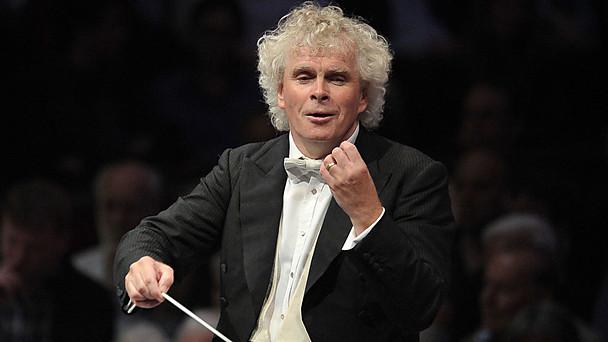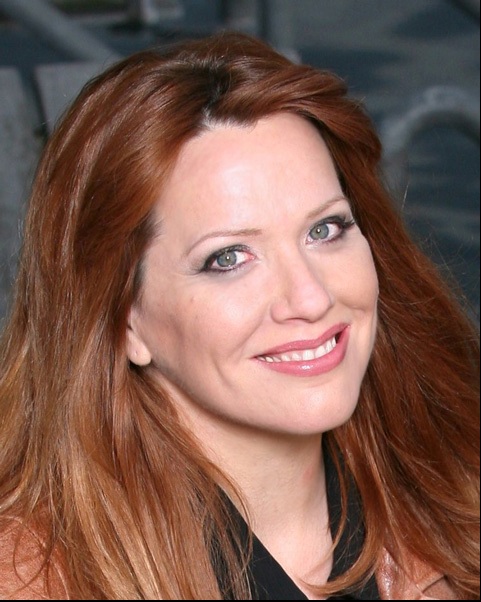How often should a music-lover go to hear Britten’s most layered masterpiece? From personal experience, I’d say not more than once every five years, if you want to keep a sense of occasion fresh. So how often should an orchestra play it? Sir Simon Rattle and his Berlin Philharmonic decided they could manage three nights in a row towards the end of their 2013-14 season. At the first of the performances, it already felt like a lot might have been kept in check. This, alas, was for the most part the kind of workaday performance Shostakovich, who rated the work alongside Mahler’s Das Lied von der Erde as The Greatest, liked to call "mezzo-fortist"; for there were few extremes of shattering volume or harrowing silence, at least not until the final reckoning.
It should have been the right occasion. From my own perspective, I’d not heard Rattle conduct War Requiem for exactly 30 years; his 1983 Aldeburgh Festival monument in Bury St Edmund’s Cathedral with the City of Birmingham Symphony Orchestra can never be forgotten. On Friday, I came straight from a Dresden I’d only previously seen before the 1990s rebuilding to the democratic auditorium of Hans Scharoun’s Philharmonie, constructed during the early 1960s in a still-stricken Berlin at the same time as Britten was working on his biggest statement. We had a British tenor, a German (bass) baritone and an American soprano, one of the world’s best professional choirs and a chamber ensemble – to accompany the male soloists in the Wilfred Owen settings which so painfully counterpoint the Latin mass – highlighting many of the Berlin Philharmonic’s finest players, with many other equally strong co-principals in the main body of the orchestra.
 So what went wrong, or rather what didn't happen? Put it partly down to Rattle’s seemingly matter-of-fact attitude (the conductor pictured right by Chris Christodoulou): no waiting around for perfect silence before the start of each sequence, no long line through what should have been the balm of strings and choral ladies in the Recordare, not the best of balances between chamber orchestra, placed to the conductor’s immediate right, and the two men. But neither tenor nor baritone projected enough on the one hand or compelled us to strain to hear the narrative of their private hells on the other. John Mark Ainsley delivered the words and the notes, no more; certainly not enough for the tone-row at the end of the Agnus Dei (Galina Vishnevskaya called it one of the most unfathomable of musical moments when Pears sang it, and the classic Decca recording tells us what she meant).
So what went wrong, or rather what didn't happen? Put it partly down to Rattle’s seemingly matter-of-fact attitude (the conductor pictured right by Chris Christodoulou): no waiting around for perfect silence before the start of each sequence, no long line through what should have been the balm of strings and choral ladies in the Recordare, not the best of balances between chamber orchestra, placed to the conductor’s immediate right, and the two men. But neither tenor nor baritone projected enough on the one hand or compelled us to strain to hear the narrative of their private hells on the other. John Mark Ainsley delivered the words and the notes, no more; certainly not enough for the tone-row at the end of the Agnus Dei (Galina Vishnevskaya called it one of the most unfathomable of musical moments when Pears sang it, and the classic Decca recording tells us what she meant).
Most disappointing was Matthias Goerne. The more he strained and self-conducted to express the inexpressible, the less the muffled sound travelled. Consonants were swallowed, words unintelligible, the knife of Owen’s bitter irony blunt. That still-shocking moment in the poet’s retelling of the Abraham and Isaac story where the old man ignores the angel’s command and "slew his son – and half the seed of Europe, one by one" went for nothing from both soloists, mostly because the line couldn’t be heard.
 Up among the choir, much was intelligently shaded. But a professional force of less than 60 (the Rundfunkchor Berlin on this occasion) is no substitute for an amateur choir of 100 plus, at least if well enough trained and all its members singing about the last judgment and the abominable fields of war as if their lives depended upon it. A light in the greyness, though, was Emily Magee (pictured left), singing alongside them with all the lyric-dramatic backbone and occasional glow the mostly stentorian soprano part needs. Berlin trebles up in the top box to the left sang piercingly enough, but the trick of having them with their backs to most of the audience in the Philharmonie's stunning tiered amphitheatre did not render the sound as remote as Britten wanted (it never fails in the gallery of the Royal Albert Hall, of use for once).
Up among the choir, much was intelligently shaded. But a professional force of less than 60 (the Rundfunkchor Berlin on this occasion) is no substitute for an amateur choir of 100 plus, at least if well enough trained and all its members singing about the last judgment and the abominable fields of war as if their lives depended upon it. A light in the greyness, though, was Emily Magee (pictured left), singing alongside them with all the lyric-dramatic backbone and occasional glow the mostly stentorian soprano part needs. Berlin trebles up in the top box to the left sang piercingly enough, but the trick of having them with their backs to most of the audience in the Philharmonie's stunning tiered amphitheatre did not render the sound as remote as Britten wanted (it never fails in the gallery of the Royal Albert Hall, of use for once).
There was some gilded playing, of course. Choirs of trumpets, trombones and horns all scythed their way superhumanly through the various judgment-day fanfares. Among the superlative chamber players whistling woodwind volleys of shells aimed to shock and Marie-Pierre Langlamet provided the subtlest of harp flourishes.
At last, in the desperate trudge through mud which launches the Libera Me, the Berlin strings were able to mine their deep sound; and while the nuclear blast of the climax to end all climaxes wasn’t ideally placed, its subsiding to solo strings duly amazed. In that barely-accompanied "Strange Meeting" – a setting of Owen's greatest poem equal in its own supernatural way, as Shostakovich said it was, to Mahler’s Farewell for mezzo and orchestra – Goerne finally convinced me of his own awed response in "I am the enemy you killed, my friend". But the whole occasion should have been on something of that level, convincing us of Britten’s deeply felt mastery in every bar, and for the most part the ghosts and the angels stayed away.
- The Saturday performance can be viewed on demand on the Berlin Philharmoniker's Digital Concert Hall (subscription only)
- More about Britten on David Nice's blog, I'll Think of Something Later















Add comment